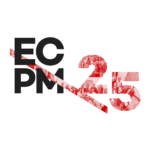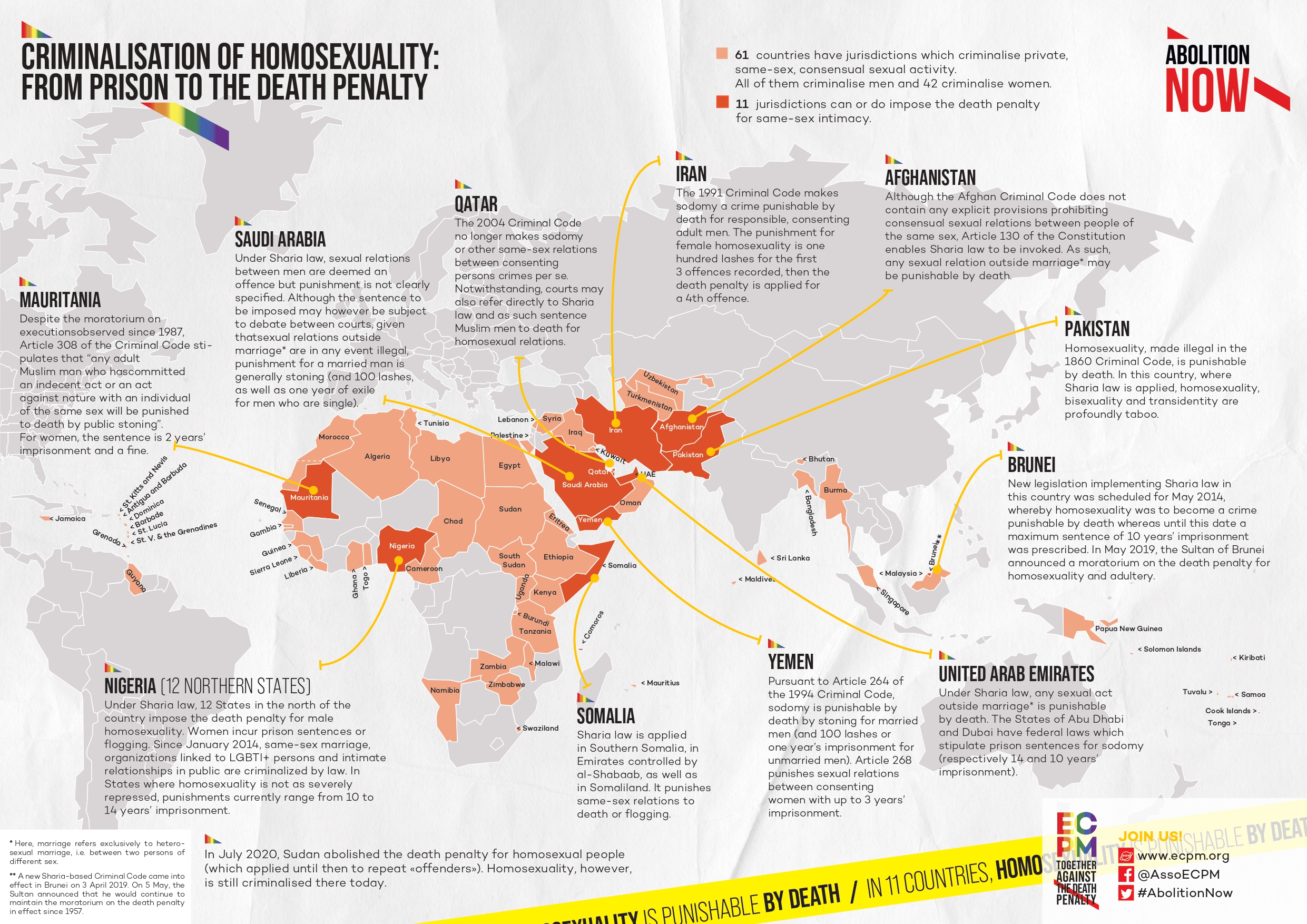
Edward Mutebi is a Ugandan activist, founder of Let’s Walk Uganda and co-founder of The World is Watching International. He currently resides in Germany and is a member of Queer Amnesty in Berlin. While still in Uganda, he mobilised for the LGBTQIA+ community in many ways, starting with opening an organization in 2015, Let’s Walk Uganda; the first ever openly declared organization to create a safe shelter for LGBTQIA+ people in Uganda and help community members, especially the homeless, by giving them skills to support themselves and providing legal support in partnership with medical and other organizations to reach out to the queer community.
Can you explain the situation of LGBTQIA+ people’s rights in Uganda just before the new anti-homosexuality bill passed by the parliament?
Before the bill, the situation has never been any better because we saw something of the sort before. It’s not the first time that the government of Uganda introduces such draconian and very violative law to the community. The government had already introduced the Anti-homosexuality Bill of 2009. The law was discussed in parliament, until it was passed in 2013. Then it took effect after being signed by the President around January, I think, in 2014.
The law was in operation for some time before it was annulled. The Constitutional Court cancelled it on some technical grounds and since 2014 the persecution has been there. Different kinds of persecution have occurred but in silence. For example, there was an attack on a very common bar ̎ The Ram Bar ̎, a meeting point for LGBTQIA+ people in Uganda downtown underground. The government managed to find it and attacked that place in 2019. They arrested a massive number of people, up to hundreds, and they did whatever they did to them while in jail. Some of them actually went to prison while others were able to be released. In December 2019, my organisation, Let’s Walk Uganda was attacked by the police. They just stormed into our offices and shelters and then they arrested 16 people, including the staff of the organisation and the shelter occupants and then they took them and they tortured them under custody. They subjected them to examination and made numerous violations on them. After a certain time they released them.
Then, in the next year another organisation was attacked and then another year another organisation was attacked in a similar manner. We have also unexplained deaths since 2014 up to date, of LGBTQIA+ people dying in a very mysterious way, people found beaten in their houses to death and the government has never submitted a report to explain these deaths.
So the prosecution had already existed, but of course silently. This law, the introduction of the anti-homosexuality bill of 2023, only fuelled what was already there. So it fuelled the prosecution and allowed the public and the world to see what happened.
To what extent is this law in violation of the constitution in Uganda?
Many rights are violated under this law, freedom of speech, freedom of expression and freedom of association. Some of them may be attacked indirectly, some are attacked directly. One of the very openly violated rights is the right to consent to sex. The government, in this bill, is saying that there will be nothing like the concept of consent as a defence under this law as long as you are 18, and above. If you are caught having a same-sex relation even non-consensual, you may be prosecuted.
Another right that is being violated is the right to housing. Under the new law or bill, anyone who gives a house, a shelter, or rents space to an LGBTQIA+ person, will be subject to prosecution. For anyone who understands what I mean, reading behind the lines, they are trying to attack the housing rights of homosexuals due to the fact that homosexuals in my country do not have bungalows to stay in, they are supposed to rent places to stay. So, as soon as you start prosecuting a person who is supposed to give me a house, it just means that you are depriving me of all my housing rights. There is also a clause about providing medical care to anyone who belongs to our community, anyone who provides us services is liable to prosecution. This means that people are afraid to go to the doctor in this sense, because they can no longer go to the doctor and tell him or her that they are homosexual or whatever, because they fear prosecution. So, we see that access to medical care is totally compromised and that can lead to an increase in HIV and other diseases.
So there are quite a number of rights that are being violated in this bill but I would also like to point out that the right to life is also being violated. The current bill states that anyone caught in the act of aggravated homosexuality is liable to the death penalty. A genocide is going to happen in my country because some of the clergy and some of the religious leaders have openly spoken out in broad daylight to call for death, to call for beheading homosexuals!
How can we support the Ugandan LGBTQ community as French people, as people from a foreign country or as members of the international community? What would be the means to help, support and raise awareness?
Raising awareness is the first thing to do. The damage is already very significant, so we don’t know what will happen if the law is signed. We are very worried. The international community can only help us to defend the rights, to defend the Ugandan people who are cornered and threatened with extinction.
We call on the international community to uphold international laws that also call for the responsibility to protect (R2P). And if it is enacted, what do I appeal to? I call on all countries, Western countries, to impose all possible sanctions on the country, on the government of Uganda, until they feel the pinch, until they feel the pain of not being able to support this law.
I also call on Western governments to refuse to issue visas to the officials who pushed this law through parliament.
Support the Ugandan people in this way. This is the only kind of pressure we can put on Ugandan government because they learn and listen through pressure.
The law also covers minors under 18 years old who will be arrested if they commit a homosexual act, and they will be imprisoned for three years. Imagine being a 16, 14, or 11 years old child and having three years of your life stolen from you just because of your gender or sexual orientation. That’s how bad it is. That’s why I’m also calling. I call on children’s organizations, international organizations. They should stand up because this does not only affect the elderly, but also young children.
What is the opinion of the general public as a whole on LGBTQIA+ people?
First of all, it may be quite challenging in this sense because we’re having a lot of information going out about LGBTQIA+ people. The media, the homophobic pastors say that gay people are pedophiles, gay people are rapists, gay people, recruit young children into homosexuality. That’s the narrative going out to the community. But there is nothing like a counter narrative from the side of the LGBTQIA+ people. So, we need to develop counter narrative strategies that can clear the negative misinformation and propaganda spread to the community, then after we can seek the public opinion on the LGBTQIA+ community because it should be noted that LGBTQIA+ people are family, brothers, sisters, sons and daughters of the same community that we seek an opinion from.
Regarding other countries in Africa, do you think Uganda is taking a step back? Or is it a tendency that the rights are generally taking a step back or what do you think about it?
Actually, according to the global statistics, this law is the worst law criminalising people having sex with the same sex. It’s very brutal, it’s calling for death sentence, it’s calling for life imprisonment, it’s calling for imprisoning minors, it’s calling for so many things criminalising, even service providers, essential service providers like NGOs and it’s very broad and very brutal, very unfair, very unjust, very unfriendly, very unconstitutional, very internationally wrong. That’s the law. Therefore, the Uganda I know started taking steps back in terms of human rights not today, not yesterday, but years back, since 2009 when they first introduced this law. But again, we are having so many evils in the country. We are having people disappearing. We are having people being killed. People have been in prison on political grounds for years. We are having poverty rocking the entire country. We are having high cost of fuel, high cost of living and the highest corruption degree. These are things we’re supposed to be discussing in parliament. But the government and its parliament, decided to start discussing bedroom matters. My culture is very reserved when it comes to sex. Of course, if they really respect the African culture, they should not even get up and start shouting those vulgar words as they do in the parliament, when they say they are so cultured.
Early this year, the government of Uganda published a list of organisations which it claimed that those organisations were recruiting, promoting, and spreading homosexuality in Uganda. Let’s walk Uganda was among those organisations that were falsely accused by government, the parliamentary debates are watched by so many people including children and people who had no idea about homosexuality but now they know since our parliament gave the matter a lot of attention and used all terms of words that crossed their minds. The media attention given all through the tabling of the bill till now is promotion enough and promotion done by government itself.
I wish to conclude by challenging the religious leaders in Uganda, these “Men of God” came up strongly to support the bill as some of them went ahead calling for beheading LGBTQIA+ people, that’s on record by one Muslim leader. I challenge the religious leaders to use the same energy they used to condemn, child rights violations, corruptions, kidnaps by government, the worrying health care, poverty, torture among the countless evils that you keep quiet about yet you rush to condemn LOVE.
I also appeal to the international community to support community based root organisations that are standing in the frontline to provide all possible support and services to the LGBTQIA+ community in these very worrying situations.
With the campaign “Love is not a crime”, ECPM denounces sexual discrimination and urges countries that sentence people to death on the grounds of sexual orientation to decriminalise it. ECPM also denounces countries with openly homophobic legislation. Asserting and living one’s sexual orientation freely is not a crime and should have no place in a penal code. However, in Africa, the Middle East and Asia, legislation continues to penalise homosexuality.

